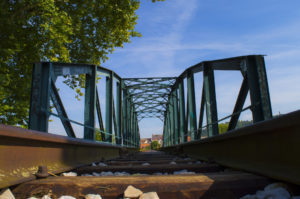
The other day I was thinking about how I was going to miss a self-imposed deadline that I had told a lot of people I was going to meet. As I started thinking about how I was going to tell them I would miss it, I started thinking about what their reactions might be. In my mind, everyone except one person would say something like, “it’s ok. At least you’re making progress and moving toward something you really want.” But one person would say something like, “I knew you couldn’t do it.”
Whether these reactions are real or not, it bothered me that this one person would say something so negative. Then it dawned on me that I don’t really like this person much. They’re friendly and can hold a decent conversation for a while, but I don’t consider them anything more than an acquaintance. So why would their reaction bother me so much?
I discussed this with a very close friend of mine. She said that she thinks the same thing too. She’s more concerned with reactions from people she doesn’t like than people she does. And she agreed that it seemed a little weird.
As we talked about it further, we came to the realization that for the people we don’t like, we often have something to prove. Often it’s a way of telling them “I told you so.” If we can only prove that we’re better than they think we are then somehow that gives us self-validation that we’re really good people.
We also both realized That’s Just Stupid.
There’s only one person you ever have to prove anything to, and that’s yourself.
The people who like you for who you are now will still like you even if you fail. They’ll be encouraged by your efforts to even try. They’ll support you and help you achieve your dreams.
I think back to 2009 when I made my first attempt at a long distance hike. I was going to hike part of the Colorado Trail – the 106 miles (171km) from Denver to Breckenridge. And I would do it in 7 days. That’s roughly 15 miles (24km) per day. I thought it would be no problem. I’d done some training ahead of time and felt that with 14 hours of daylight I could somehow muster up 15 miles per day.
Things didn’t turn out that way. Day one I got barely 11 miles (18km) and was beat. Day two, which had more downhill, I managed to get 14 miles (22.5km) then had to call for a mini-rescue. I was just too tired to go any further.
Yet, when I returned and told my friends what had happened, they were all impressed that I had made 25 miles in two days. They also said that I had done the right thing by quitting when I did rather than risk injury or death by continuing. Finally, the all encouraged me to try again since they knew this was something I really wanted.
Their comments had a positive impact. Over the next year, I made some adjustments to my gear. I also trained harder. In 2010, I hiked 72 miles (116km) in just under 4 days. Two years later, I hiked 214 miles (344km) in under 11 days – averaging right around 20 miles (32km) per day.
And all because I didn’t have to prove anything to anyone. I just tried, failed, made some adjustments, tried again, and did a little better.
So what about now? What’s different about this time? This time, it’s a bigger goal – quitting my corporate job and becoming self-employed. That’s a little harder than attempting a week long hike. But if I fail, I can just go back to the corporate world for a while to regroup. Given that I’m a software engineer, I could even do contract work which is sort of like being self-employed, to get some funds to try again.
The only downside of failing is that ONE PERSON who I don’t really like will say, “I told you you couldn’t do it.”
But the downside of not trying is that I’ll forever have the regret of “what if.” And I’ll still have that one person saying “I told you so.”
The only way to win is to try. You just might surprise yourself.